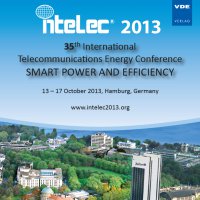The Effects of Mechanical Electrolyte Mixing on Vented Lead Acid Cells in Renewable Energy Applications
Konferenz: Intelec 2013 - 35th International Telecommunications Energy Conference, SMART POWER AND EFFICIENCY
13.10.2013 - 17.10.2013 in Hamburg, Deutschland
Tagungsband: Intelec 2013
Seiten: 11Sprache: EnglischTyp: PDF
Persönliche VDE-Mitglieder erhalten auf diesen Artikel 10% Rabatt
Autoren:
Baecker, Jens (Head of Product Management, HOPPECKE Batterien GmbH & Co KG, 59929 Brilon, Germany)
Inhalt:
Changes in the energy sector worldwide require more and more decentralization of the power supply to relieve pressure on the electric grid and distribution network and to increase efficiencies. Where energy storage is used to balance these networks, additional efficiencies are needed in the energy storage systems to address operation under partial states of charge as well as cyclic load conditions. Precisely controlled mechanical mixing of electrolyte in vented lead acid cells can have significant benefits in cycling applications. It has been known that this process can reduce stratification in vented lead acid cells in standby applications. Here we will present data to demonstrate how this can be applied in renewable energy applications and how this process can affect the final state of charge, energy consumption (Ampere-hour and Watt-hour efficiencies) and overall life of the battery system. Details will be provided on effects of electrolyte stratification on the life of a battery and how mechanical mixing of the electrolyte affects lifetime and availability of energy. The outline of a mechanical system design will be discussed along with data to show the benefits of such a system, for cycling and renewable energy applications.


